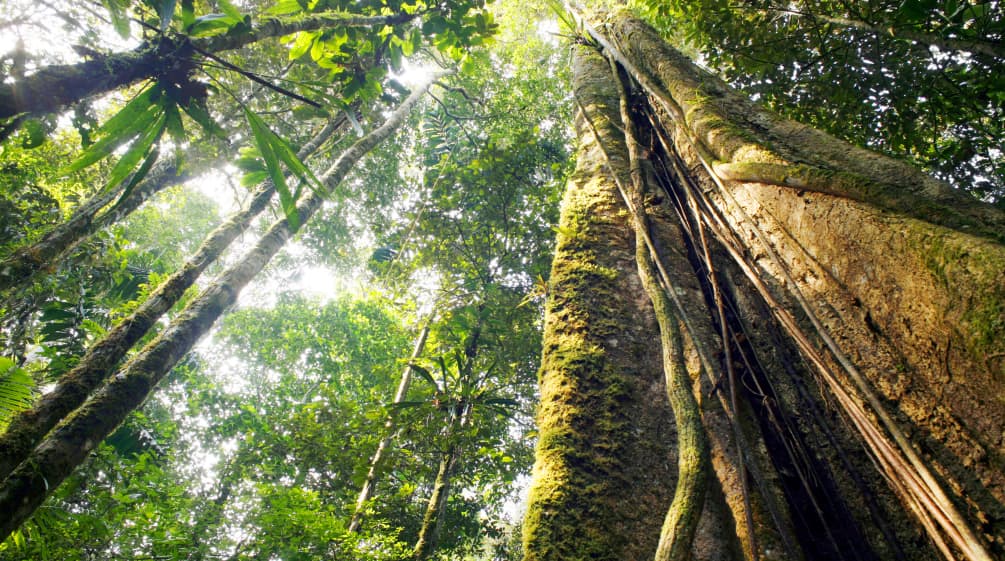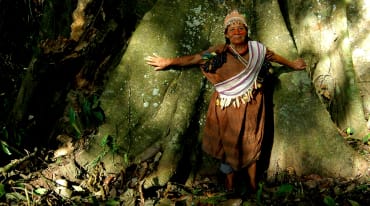COP 15: Can the UN stop the extinction crisis?
 © Dr Morley Read / shutterstock.com
© Dr Morley Read / shutterstock.com
Dec 7, 2022
Can we stop the mass extinction of animal and plant species? Nothing less is at stake at the UN Biodiversity Conference from December 7 to 19 in Montréal. The scale of the crisis is alarming – up to one million species could be wiped out within the coming decades. We will be meeting with the Executive Secretary of the Convention on Biological Diversity, Elizabeth Maruma Mrema, in Montréal.
Rainforest Rescue Co-Chair Marianne Klute: “The extinction crisis is about more than saving iconic species such as orangutans and polar bears. Holes are opening in the web of life – and at some point, the web will tear, and entire ecosystems will collapse.”
“This is particularly apparent in tropical rainforests and peat forests – ecosystems which are unparalleled in their biodiversity, and which play a crucial role in stabilizing the climate. Biodiversity conservation, the preservation of rainforests and climate protection are therefore inseparable. If we fail in putting these threefold protections into place, we will destroy the very foundations of life: Nature supplies us with food, water and clean air, as well as medicines and building materials. Forests are spiritual places and homes for billions of people. The success of the UN conference is therefore crucial to our future.”
Government delegations from nearly 200 countries will be traveling to Montréal, and around 50 countries are sending ministers. A total of 10,000 people are taking part in the conference.
The focus of COP 15 is a future agreement for the protection of species and nature conservation, the “Post-2020 Global Biodiversity Framework”. However, the UN’s plan to place 30 percent of the world’s land under protection by 2030 has drawn sharp criticism from environmental protection and human rights organizations. The “30 by 30” plan has the potential to be the biggest land grab in history while doing little to protect biodiversity.
A joint petition by Rainforest Rescue and more than a dozen African and Asian organizations is calling on the UN and its member states to protect biodiversity by strengthening Indigenous rights rather than focusing on “30 by 30”. Studies have shown that the environment is in a better state wherever Indigenous people are the stewards of the land.
“While putting 30 percent of the planet under protection is tantalizing in its simplicity, it is a dangerously flawed concept. It assumes that nature can only be protected by keeping humans out. Displacing the local population for “30 by 30” would impact 300 million men, women and children, many of them Indigenous people. This would amount to evicting the most effective guardians of the rainforest in the name of conservation. Studies have shown that the environment is in a better state wherever Indigenous people are the stewards of the land. Whether protected areas do anything for nature is questionable: Their number has skyrocketed, but biodiversity is still collapsing. Instead of falling back on outdated concepts like heavily guarded national parks, this conference must strengthen the rights of Indigenous people,” explains Marianne Klute.
The petition, which has been signed more than 65,000 times to date, will be delivered to the Executive Secretary of the Convention on Biological Diversity, Elizabeth Maruma Mrema, in Montréal on Dec. 8 (Thursday, 3 p.m. local time).











